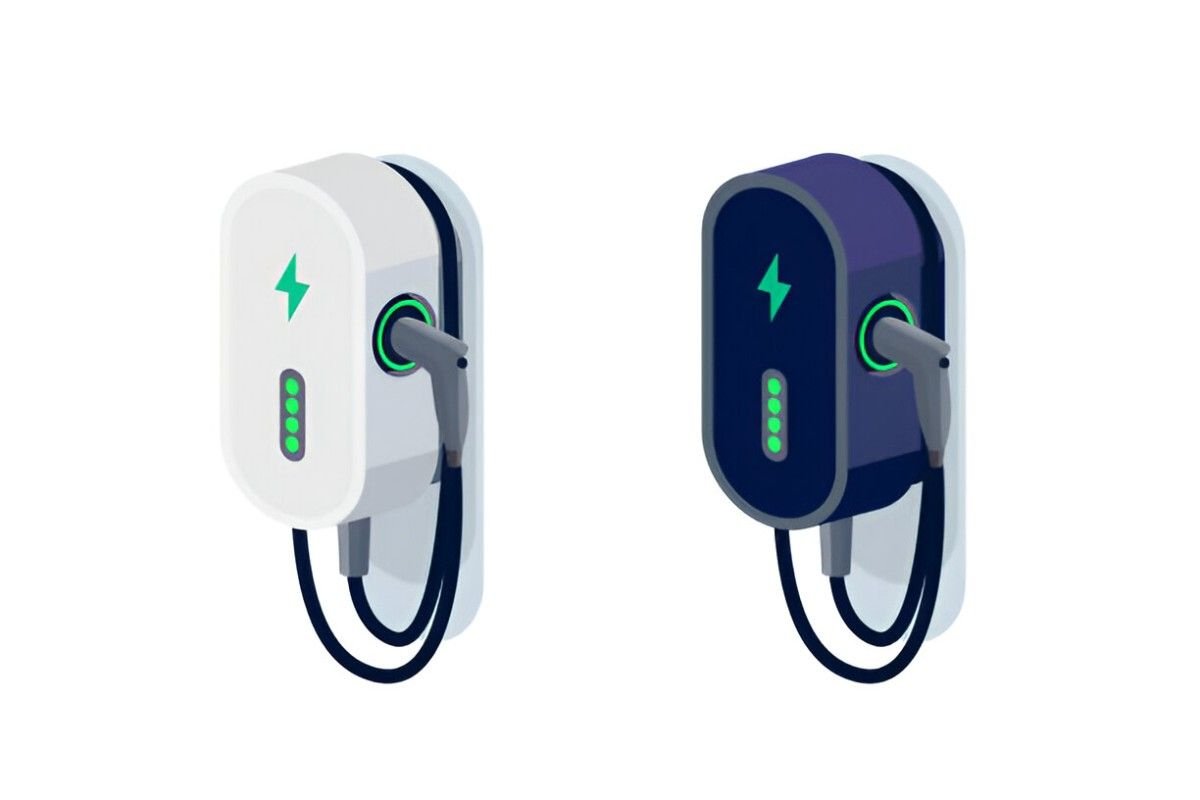As an electric vehicle (EV) owner, one of the key decisions you’ll face is choosing the best electric car charger. Having a reliable and efficient charging setup can make all the difference in your daily driving experience. In this guide, I’ll walk you through everything you need to know about selecting the right electric car charger for your needs. Whether you’re new to EV ownership or looking to upgrade your current charging equipment, this guide will help you make an informed decision.
Table of Contents
What Is an Electric Car Charger?
Electric car chargers are devices that provide electricity to your vehicle’s battery. These chargers come in various types, speeds, and designs, making it important to choose one that matches your car’s requirements and your lifestyle.
There are two primary types of EV chargers:
- Level 1 Chargers – These are the standard chargers that plug into any regular household outlet (120V). They are slow but convenient for overnight charging at home.
- Level 2 Chargers – These require a 240V outlet and offer much faster charging than Level 1. They are ideal for home installation, though some people also use them in public charging stations.
A third category, Level 3 Chargers (also known as DC fast chargers), are much less common for home use. These chargers can charge a vehicle in a matter of minutes, but they’re typically found in commercial locations or along highways for long-distance travel.
Key Factors to Consider When Buying an Electric Car Charger
When selecting the best charger for your needs, several factors should guide your decision. Let’s go through them:
1. Charging Speed
The speed at which a charger can recharge your electric car is crucial. Level 1 chargers, while convenient, can take upwards of 12-20 hours to fully charge your vehicle. Level 2 chargers, on the other hand, can reduce that to 4-8 hours, making them ideal for overnight charging.
2. Compatibility
Ensure that the charger you choose is compatible with your vehicle’s charging port. The most common connector types are:
- J1772: Standard for most EVs in the U.S.
- Tesla: Tesla vehicles use their own connector but come with an adapter for other chargers.
You also want to ensure the charging station’s power output matches the needs of your EV. Some vehicles can handle higher charging speeds, while others may not support fast-charging capabilities.
3. Smart Features
Many modern chargers come with smart features such as Wi-Fi connectivity, mobile app integration, and the ability to schedule charging times. These features can be incredibly convenient if you want to take advantage of lower electricity rates at night or monitor your car’s charging status remotely.
4. Portability
If you need a charger that you can easily take with you when traveling, a portable Level 2 charger might be the right choice. These chargers offer the convenience of fast charging on the go without needing to install a dedicated station.
5. Cost and Installation
The price of an electric car charger can vary widely based on its features, charging speed, and brand. Level 1 chargers tend to be less expensive, while Level 2 chargers can cost more, especially if you need to pay for electrical installation. Be sure to factor in installation costs when budgeting for your charger.
6. Safety Features
Safety should always be a priority when it comes to electrical devices. Look for chargers with built-in safety features like overcurrent protection, short-circuit protection, and temperature monitoring to ensure your charger operates safely.
Types of Electric Car Chargers
Level 1 Chargers
Level 1 chargers are the most basic type of EV chargers. They plug directly into a standard 120V outlet and are the slowest method of charging. While they can take an extended amount of time to fully charge your car, they offer convenience for overnight charging, especially if you drive short distances.
Pros:
- Doesn’t require special installation or equipment.
- Can be used at home with a standard outlet.
Cons:
- Slow charging speed.
- Not ideal for long-range EVs or daily use.
Level 2 Chargers
Level 2 chargers are the most common for home use and are typically installed at home or in public charging stations. These chargers operate at 240V, meaning they charge your EV much faster than Level 1 chargers.
Pros:
- Faster charging speeds (4-8 hours for a full charge).
- Perfect for daily use or overnight charging.
Cons:
- Requires installation of a 240V outlet, which can incur additional costs.
- More expensive than Level 1 chargers.
Level 3 Chargers (DC Fast Chargers)
Level 3 chargers are designed for rapid charging, offering a full charge in less than an hour. However, these chargers are primarily located at public charging stations or along highways for long-distance travel, and they are not commonly used in residential settings.
Pros:
- Extremely fast charging speeds (can recharge a battery in 30-60 minutes).
Cons:
- Expensive and not practical for home use.
- Can only be found in specific locations.
Comparison of Popular Electric Car Chargers
To help you choose the best charger, let’s compare some of the top-rated models on the market today. I’ve broken down the comparison based on features like charging speed, price, and compatibility.
| Charger Model | Type | Charging Speed | Price Range | Smart Features | Compatibility |
|---|---|---|---|---|---|
| ChargePoint Home Flex | Level 2 | 25-37 miles per hour | $500 – $700 | Wi-Fi, mobile app, scheduled charging | J1772, Tesla (with adapter) |
| Tesla Wall Connector | Level 2 | 44 miles per hour | $500 – $600 | Wi-Fi, mobile app, customizable power levels | Tesla only |
| JuiceBox 40 | Level 2 | 32 miles per hour | $600 – $700 | Wi-Fi, mobile app, scheduling | J1772, Tesla (with adapter) |
| Grizzl-E Classic | Level 2 | 24-32 miles per hour | $400 – $500 | No smart features | J1772, Tesla (with adapter) |
| Blink HQ 150 | Level 2 | 30 miles per hour | $400 – $500 | No smart features | J1772 |
Key Takeaways from the Comparison Table
- Tesla Wall Connector: Ideal for Tesla owners, this charger offers the fastest charging speed but is exclusive to Tesla vehicles.
- ChargePoint Home Flex: This charger is known for its flexibility, supporting both Tesla and non-Tesla EVs while offering robust smart features.
- JuiceBox 40: A solid choice for those looking for a reliable Level 2 charger with mobile app integration.
- Grizzl-E Classic: A more budget-friendly option for people who don’t need advanced smart features but still want a reliable charger.
- Blink HQ 150: This is another no-frills option that provides decent charging speeds and reliable performance at a lower price point.
Installing Your EV Charger
Once you’ve selected the charger that best fits your needs, the next step is installation. For Level 2 chargers, you will need to hire a licensed electrician to install the necessary 240V outlet. The cost of installation can vary depending on your home’s electrical system and the distance from the main electrical panel. On average, you can expect to pay between $200 and $1,000 for installation, though the total cost will depend on several factors.
Installation Considerations:
- Location: Where you park your EV is crucial. The closer your parking spot is to your electrical panel, the less expensive installation will be.
- Circuit Requirements: Level 2 chargers typically require a dedicated 40-50 amp circuit.
- Permits: Some areas require permits for electrical installations, so check with your local authorities.
Charging at Home vs. Public Charging Stations
Another important factor to consider is whether to rely on home charging or take advantage of public charging stations. While home charging is convenient and cost-effective, you might find it necessary to use public stations during long trips or when you don’t have access to a home charger.
Public charging stations can be found in parking lots, shopping centers, and along highways, but they often come with a fee. Apps like PlugShare and ChargePoint can help you locate nearby charging stations.
Conclusion
Choosing the best electric car charger depends on your specific needs, including your driving habits, charging speed preferences, and budget. For most people, a Level 2 charger is the best option, providing a balance between fast charging speeds and cost-effectiveness. Take your time evaluating the different models and consider factors like compatibility, smart features, and installation costs.
If you’re still unsure, don’t hesitate to consult with an expert or an electrician who can help you make the right decision. Electric vehicles are the future of transportation, and having the right charging setup is key to enjoying a seamless driving experience.





